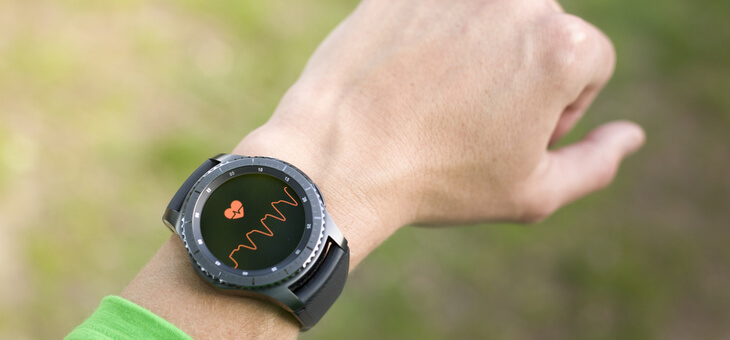Wearable technology – it’s a strange phrase. The ‘back in my day’ brigade would say, “Back in my day you wore clothes and jewellery, not technology!” I used to be one of those luddites, but I must admit to being somewhat of a slave to my Fitbit these days.
For me, it’s really about making sure I achieve my step count target each day, but my Fitbit actually monitors much more than that. It records my sleep patterns, how many minutes of the day I’ve been ‘active’ and my heart rate at any given moment.
At this moment it’s telling me my resting heart rate is 69 beats per minute. That’s nice – but is it accurate? And does it need to be?
Read: Medical smartwatch could revolutionise treatment of common diseases
The answer to both questions is, not necessarily. Professor Carol Maher, researcher in the Alliance for Research in Exercise, Nutrition and Activity (ARENA) at the University of South Australia, says that while the old adage, ‘information is power’, generally holds, in this case, it does so only within limits.
“Medical features [on wearables such as Fitbits] can be useful, but they’re a bit more in that grey area where they’re not as accurate as medical tests. There is a degree of concern that people may use their watch to substitute a more accurate medical test.”
Prof. Maher’s work explores how technologies such as wearables, online social networking, smartphone apps, gamification and artificial intelligence can support people to make better lifestyle choices, in an engaging, convenient way
The key, she says, for those who have embraced wearable technology, is context. This is becoming more relevant with each new element of technology that devices are introducing.
Read: What to do when ‘Hey Siri’ doesn’t work on your Apple device
While my Fitbit, which is a few years old now, provides relative basic information, the latest wearables deliver much more. The Apple Watch Series 7 measures your blood oxygen level, which Apple claims is a key health indicator, and take an ECG reading at any time. Samsung’s Galaxy 4 watch has the same ECG capability and also offers something called bioelectrical impedance analysis (BIA), a method of estimating body composition (body fat and muscle mass).
That’s a good thing, right? Yes, and maybe also no, says Prof. Maher. “Certainly, [this technology] can potentially help flag an issue that people didn’t realise they had. But it can’t really replace having proper medical tests done. There is a degree of concern that people may use their watch to substitute a more accurate medical test.”
Taking that concern into consideration, wearables can provide very useful feedback to the wearers themselves and, increasingly to doctors themselves. Professor Maher says doctors are increasingly open to looking at data collected by patients via their smart devices.
This view is supported by Dr Bijan Najafi, professor of surgery and director of clinical research in the division of vascular surgery and endovascular therapy in the Michael E. DeBakey department of surgery at Baylor College of Medicine. Dr Najafi says, “Digital wellness wearables can assist in smart triaging of patients for timely referral to outpatient or inpatient settings for preventive care or timely intervention before the disease becomes difficult to manage.
Read: Taking more steps daily may lead to a longer life
“Wearables can also empower patients to better engage in self-care and the health ecosystem. Additionally, wearables could also support personalised care delivery and facilitate delivery of care in a place where the patient is most comfortable.”
Wearable technology is here to stay, and can provide you with a good guide to fitness and activity levels. But it will not make a doctor of you. It can, however, be used in conjunction with qualified medical staff to monitor and help improve your health.
If you enjoy our content, don’t keep it to yourself. Share our free eNews with your friends and encourage them to sign up.

